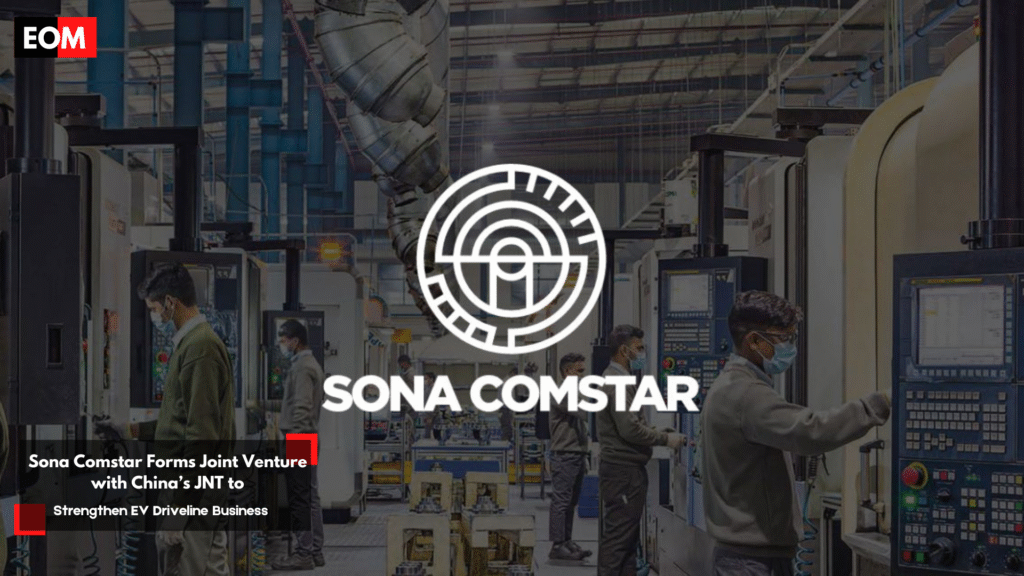Sona Comstar Forms Joint Venture with China’s JNT to Strengthen EV Driveline Business

New Delhi – Indian auto component major Sona BLW Precision Forgings Ltd. (Sona Comstar) has entered into a strategic joint venture with China’s Jinnaite Machinery Co. (JNT) to expand its footprint in the electric vehicle (EV) driveline systems segment across Asia and international markets.
As disclosed in a regulatory filing, both companies have signed a binding agreement to form a new entity that will manufacture and supply driveline systems for electric vehicles, catering to automobile manufacturers in China and global markets.
Under the terms of the agreement, Sona Comstar will invest $12 million, while JNT will contribute $8 million worth of assets and operational capabilities in the first phase of the partnership. The new joint venture is expected to begin operations in the second quarter of the current financial year, aiming to accelerate Sona Comstar’s EV-focused growth strategy.
This collaboration is a strategic move aligned with Sona Comstar’s ambition to increase market penetration in key Asian economies, including China, India, Japan, and South Korea, while simultaneously expanding its reach into Europe and North America.
JNT brings to the table a strong technological foundation with 63 registered patents, advanced high-tech casting expertise, and an established client base in the automotive and railway sectors. The partnership is expected to enhance the combined capabilities of both firms in terms of engineering, innovation, and global supply chain efficiency.
Commenting on the development, Vivek Vikram Singh, Managing Director and Group CEO of Sona Comstar, stated:
“This joint venture places us in a strong position to capture the growing opportunities in the Chinese EV market while also serving our global customers with advanced driveline technologies.”
The alliance marks a significant step forward in Sona Comstar’s vision to become a leading global supplier in the EV component ecosystem, leveraging synergies with regional partners to capitalize on the shift toward sustainable mobility.
As the global demand for electric mobility continues to grow, strategic collaborations such as this are expected to drive innovation, localize production, and deliver value to both customers and shareholders in the evolving automotive landscape.

